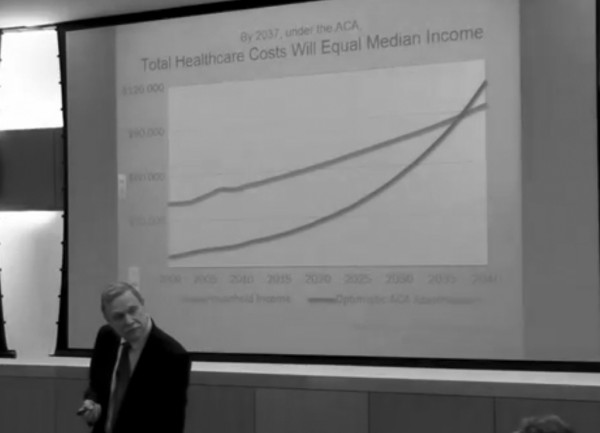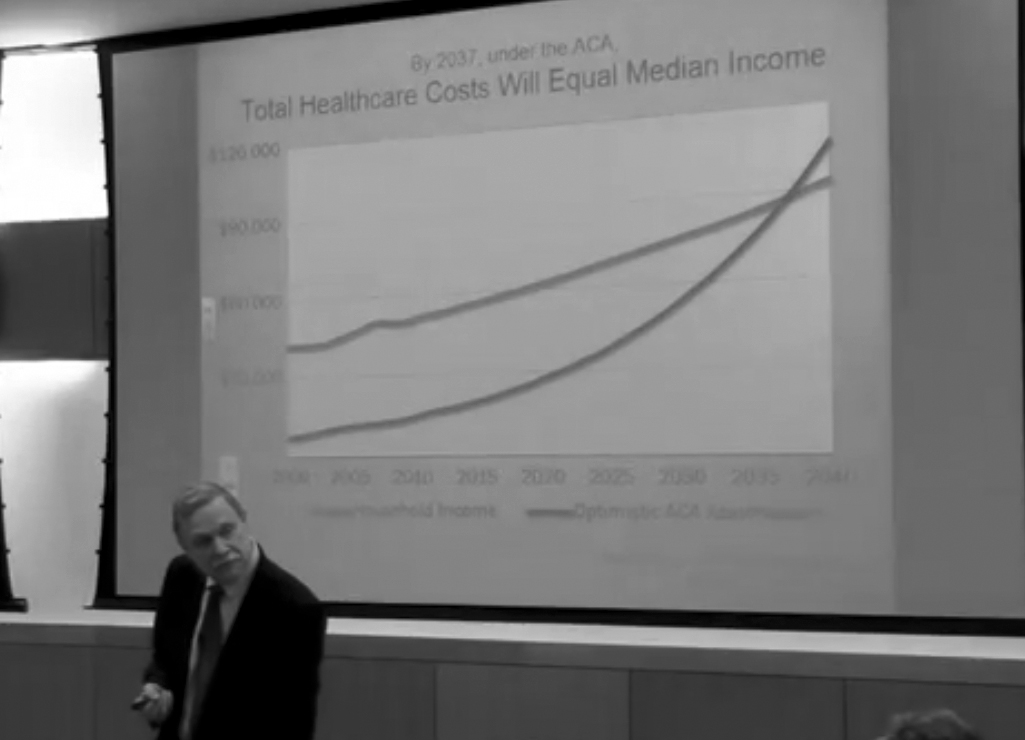
Dr. Oliver Fein, representing Physicians for a National Health Program (PNHP-RI), gave a talk Monday night to a class of second year med students at Brown University’s Warren Alpert Medical School in Providence. The talk was open to the public, but due to the snow storm attendance was low. That’s too bad, because Dr. Fein’s talk was an informative and eye opening examination of both the history of public healthcare in the United States and the possibility of transforming the current system beyond Obamacare and towards a system of truly universal coverage, what supporters call, “Medicare for All.”
In the video, Dr. Fein covers the history of healthcare in the United States, starting with President Truman’s suggestion that some sort of universal health care program might be a good idea, right up to President Obama’s successful passage of the Affordable Care Act. (For Dr. Fein’s summary, go here.)
At the 17 minute 30 second mark Fein leaves history behind and explicates the ideas behind a single payer healthcare model, or what he calls an “Improved Medicare for All.” Such a system would build upon and expand Medicare to the entire population, improve and expand coverage in the areas of preventive services, dental care and long term care, eliminate deductibles and co-payments, expand drug coverage (eliminating the “donut hole”) and redesign physician reimbursement.
Several points leapt out at me during Dr. Fein’s presentation. Using data from 2009, Fein reported that 62% of personal bankruptcies were due to medical expenses and 75% of those who declared bankruptcy had health insurance. For too many people, it seems, health insurance did nothing to prevent financial disaster.
Fein also reported that overhead costs in administering Medicare run about 3.1%. Commercial healthcare runs near 20%. This means that 17 cents (or more) of every health care dollar is wasted on administrative costs or corporate profits under our current system of private insurance. This is money that could be going towards patient care.
Fein concluded that a system based on private insurance programs will not lead to universal coverage and will not create affordable coverage, whereas a Medicare for All system can lead to universal comprehensive coverage without costing more money.
“What will happen if we don’t do this?” asked Fein in conclusion, “By [the year] 2038 a person’s entire household income will… have to pay for health insurance. A condition that’s not compatible with life.”
Rhode Island
Gerald Friedman, a PhD and Professor of Economics at the University of Massachusetts at Amherst released a 41 page report earlier this month on the possibility of adopting a single payer healthcare system here in Rhode Island. Friedman maintains that a single payer plan would result in significant savings for most Rhode Islanders and only increase healthcare spending for those making over $466,667 a year.
 Representative Aaron Regunberg, from the East Side’s District 4, is planning to introduce legislation for a statewide single payer healthcare plan this session. Model legislation from the PNHP is available here.
Representative Aaron Regunberg, from the East Side’s District 4, is planning to introduce legislation for a statewide single payer healthcare plan this session. Model legislation from the PNHP is available here.
More information about the Rhode Island branch of the PNHP can be found at their website.


